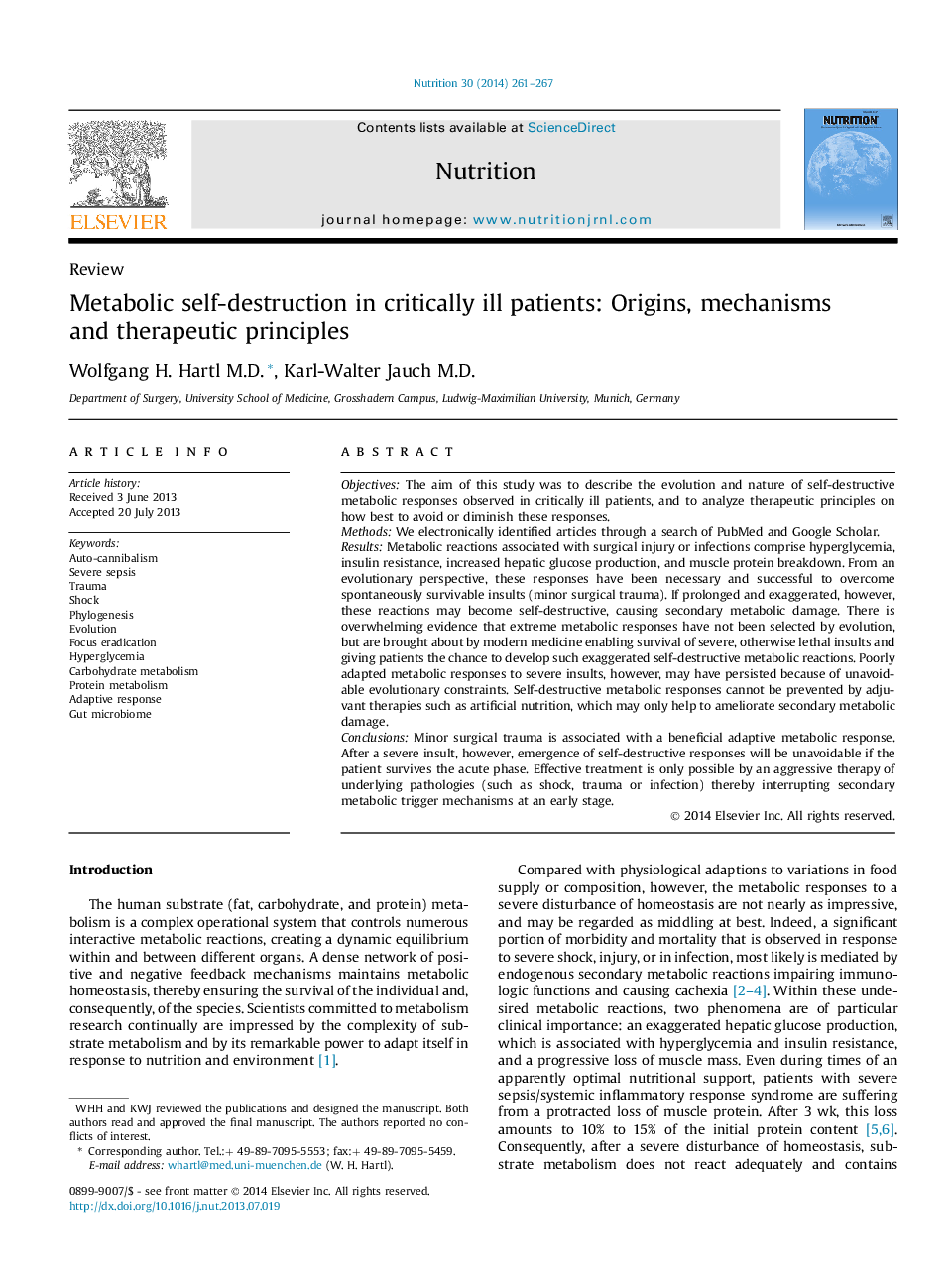| کد مقاله | کد نشریه | سال انتشار | مقاله انگلیسی | نسخه تمام متن |
|---|---|---|---|---|
| 3276336 | 1208553 | 2014 | 7 صفحه PDF | دانلود رایگان |
ObjectivesThe aim of this study was to describe the evolution and nature of self-destructive metabolic responses observed in critically ill patients, and to analyze therapeutic principles on how best to avoid or diminish these responses.MethodsWe electronically identified articles through a search of PubMed and Google Scholar.ResultsMetabolic reactions associated with surgical injury or infections comprise hyperglycemia, insulin resistance, increased hepatic glucose production, and muscle protein breakdown. From an evolutionary perspective, these responses have been necessary and successful to overcome spontaneously survivable insults (minor surgical trauma). If prolonged and exaggerated, however, these reactions may become self-destructive, causing secondary metabolic damage. There is overwhelming evidence that extreme metabolic responses have not been selected by evolution, but are brought about by modern medicine enabling survival of severe, otherwise lethal insults and giving patients the chance to develop such exaggerated self-destructive metabolic reactions. Poorly adapted metabolic responses to severe insults, however, may have persisted because of unavoidable evolutionary constraints. Self-destructive metabolic responses cannot be prevented by adjuvant therapies such as artificial nutrition, which may only help to ameliorate secondary metabolic damage.ConclusionsMinor surgical trauma is associated with a beneficial adaptive metabolic response. After a severe insult, however, emergence of self-destructive responses will be unavoidable if the patient survives the acute phase. Effective treatment is only possible by an aggressive therapy of underlying pathologies (such as shock, trauma or infection) thereby interrupting secondary metabolic trigger mechanisms at an early stage.
Journal: Nutrition - Volume 30, Issue 3, March 2014, Pages 261–267
